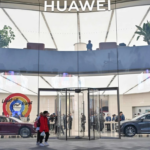
Illustration photo
According to Reuters, Iran’s crude oil trade with China has been significantly impacted by US sanctions on tankers. Specifically, the expansion of US sanctions on Iranian crude oil tankers has clogged a vital cog in commerce, slowing the flow of oil from this OPEC producer to its most valuable customer: China.
The typical route for Iranian crude oil to China is as follows. Sanctioned tankers/vessels owned by Iran depart from the country’s oil ports and then anchor at a midpoint in Southeast Asia, usually off the coast of Malaysia. Here, a ship-to-ship transfer (STS) occurs, and another tanker transports the oil to China.
However, the penalties have swept away some vessels previously delivering to China. This has forced some operators to divert from this commercial route, reducing the number of tankers available for this journey.
As a result, Iranian crude oil is reaching China in decreasing quantities and at higher costs for independent refineries in the country, which account for about 90% of Iran’s exports. This is prompting Chinese processors to seek alternative supplies from Africa and other parts of the Middle East, buying up “leftover” oil from previous trading cycles.
The sanctioned operators’ fear is that their vessels will be denied by port authorities, leaving them with the dilemma of finding a new home for their cargo and incurring additional costs. The US expanded sanctions on 20 crude oil tankers on October 11 and added 12 more to the list in the following weeks.
All but one of the tankers sanctioned on October 11 operated in Southeast Asian waters this year, with eight focusing on the transit route to China. Some of these vessels are now changing their roles in Iran’s crude oil trade.
According to data from Starboard Intelligence Maritime, one such tanker, the Shanaye Queen, has not passed west of the Malaysian peninsula since August 2023. Instead, it has been anchored in the eastern waters of the country, waiting to pick up Iranian crude oil from other vessels for transport to China.
In October, the Shanaye Queen was added to the US sanctions list, and the following month, it started heading west and is now in waters near Iran. The tanker has also been renamed Marigold in November and is currently flying the flag of Guyana instead of Malaysia, according to the Equasis maritime database.
By changing the names and flags of their vessels, operators are betting that this tactic will evade scrutiny or raise suspicions during port inspections.
According to Reuters
China’s Premier Trading Group Enters the Vietnamese Market
Sourcing quality products at competitive prices has always been a challenge for Vietnamese businesses. Yiwu Selection, a leading trading corporation, offers a unique solution with direct imports from factories, helping businesses optimize costs and gain a competitive edge in the market.









































